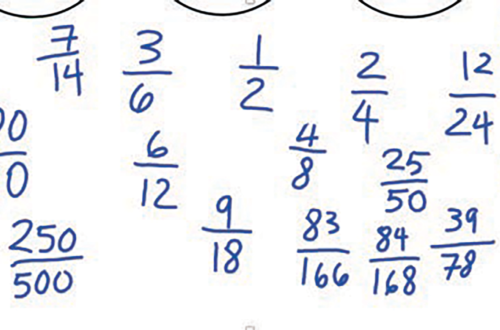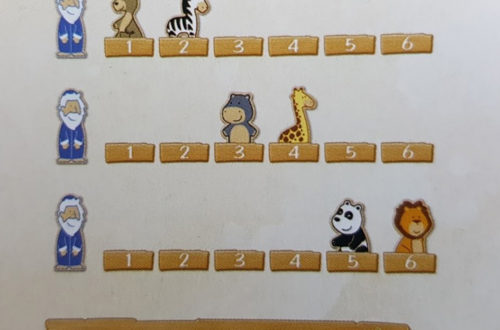Journal of the Mathematics Council of the Alberta Teachers’ Association
Volume 55 Issue 2, March 2019
One thing is certain as I travel through the landscape of mathematics teaching, learning and discourse with other educators-we have a large group of people dedicated to students’ mathematical development and understandings. I do not say this lightly. Over the last 27 years of mathematics teaching and learning focus, I have met many educators with this at the forefront of their thinking. I have observed vast amounts of dedication and effort right from kindergarten to Grade 12 (and beyond) from educators who develop lessons. activities, assessments and adaptations with the sole purpose of stretching and enhancing students’ mathematical understandings of the world.
It is an admirable cause. When we consider that mathematics weaves its way through so much of our life, we need to develop a fluency with it. When we understand that our students absolutely need the essential reasoning and problem-solving skills that mathematics develops, we are spurred onwards.
So what do I see as some of the emerging main focuses within mathematics education? As educators in 2016, we recognize that our students today are growing up in a somewhat different world than we grew up in. There are parts that are the same, such as work ethic. effort and practice, among others; however, we are increasingly realizing the importance of engaging our learners, and research has shown the value of this engagement with respect to learning, retention, application and attitudes. We are also furthering the discussion of assessment in the classroom, specifically formative assessment. as well as putting it into practice with tremendous results. Cooperative learning is presenting educators with the benefits of increased participation and learning practice for students. As math educators, we are increasingly analyzing our lessons and resources as well as thinking about how and why we are doing what we do, trying to make it the best learning environment for our students, all the while considering the complex world in which we live.
We do this always with our students in mind. I see teachers creating engaging lessons, activities and assessments; I see students excited about mathematics, solving problems with their inquiry and mathematical process skills; and I feel proud of who we are and what we do. The effort that mathematics educators are putting in to keep current within a changing educational landscape is admirable. Leading-edge thoughts and ideas propel us to excellent instructional ideas and methods that shape our true beneficiaries. the students.
This journal will present articles exploring much of the above. In the “Conversation Starters” section, you will enter into thinking about the process of grading as well as ideas for the engagement of students. “Research Articles” will present ways to analyze resources for effectiveness and depth as well as the “productive struggle” of problem solving and mathematical mastery that is so important to a person’s mathematical development and learning. “Teaching Ideas” include using an attribute-based game idea, cooperative learning structures that would fit any level of classroom and an example of a cross-curricular application of a topic. The combined Mathematics/Science Conference 2015 highlights are also included, as well as a book review, problem-solving moments and the NCTM Illuminations website highlight.
Last, thanks to all of you who are the face of mathematics education in our landscape. Continue to have this discourse and create these opportunities for mathematical learning and to build on the expertise that so many of you exhibit daily in your teaching. I am very proud of our landscape!
Lorelei Boschman
1 to 2
3 to 3
Lorelei Boschman
4 to 8
Ksenya Garaschuk
9 to 11
Musical Notes (for Grades K-6)
Mike Pacheco, Heather Glynn Crawford-Ferre and Henry King
12 to 14
Integrating Math and Music (for Grades 7-12)
Catherine Schmidt-Jones
15 to 24
Stopping the Cycle of Math Anxiety
Eric Schubert
25 to 27
David Martin
28 to 32
Ditch the CUBES when Solving Word Problems!
Sandi Berg
33 to 34
Infusing a First Nations, Metis and Inuit Perspective when Delivering Math Outcomes
Terry Lakey
35 to 39
MET Legacy Series: Theoni Pappas
Richard Seitz
40 to 42
Well This Changes Everything, Or It Should
Chris Reed
43 to 44






